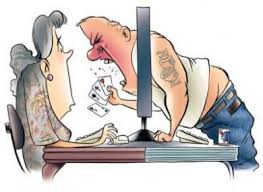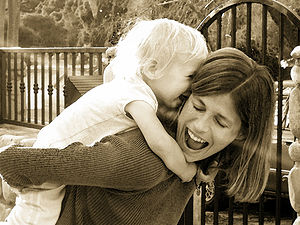I’ve been to this great APA meeting, great that is, because of the people! Wow! The fellow attendees, the exhibitors, the speakers – just, WOW.
I’m going to try to share content with you but it will take me time.

For today, “Are You a Sitting Duck Online?,” reminded me of our earlier discussions on the doctor-patient relationship and a previous post, on July 11, 2012, that went like this:
Hello Friends.
Please tell me how I’m doing on this. Just out,
Model Policy Guidelines for the Appropriate Use of Social Media and Social Networking in Medical Practice
This is important to me as I treasure both my medical practice and our community, connection, exchanges on-line. I don’t want to do anything that jeopardizes either, nor the implication that if I did, that means I would have mistreated a patient.
Thank you for this, what I call, a “good problem” to have – the joy of medical practice and participation in social media/networking.
So many of you resonated with this and engaged. I am still super grateful. I’d love to continue with you in further discussion and with your comments!
For me, one of the many reasons I was so excited about this recent talk at the APA is because of the mucho online stuff connected to my name that affects my patients and the dynamics in our patient-doctor relationship.
In my practice, these are just a few sites that have wrong information (demographics) on me:
- healthgrades.com
- vitals.com
- betterdoctor.com
- ucomparehealthcare.com
- insiderpages.com
They didn’t ask to clarify my demographics. They didn’t ask me if I wanted them to become an on-line reference on my behalf. They use my practice information to drive “eye-balls” to their site so they can get advertizing money and more. They impose incorrect information about my practice, knowing that in so doing, I will be pressed, (I call it bullied,) into contacting them with my correct information.
If I don’t do this expensive effort, (money, time, emotional expense – all in limited supply, to correct what they post incorrectly,) patients will continue to tell me that they couldn’t find my contact information. When they Google me, instead of my website coming up, these other sham pages pop up.
Some patients call dead numbers or even drive to incorrect locations to find treatment. Instead of whomever is behind these websites being held responsible, the medical providers are.
These are the notes I took from my colleagues, as I heard them say.
Unfortunately, I was late to the meeting so I missed two of the four speakers. Even so, this is worth it.
Dinah Miller M.D., Author of “Shrink Rap” and writing regularly for Clinical Psychiatry News.
Dr. Miller told us about the difficulty of “patient” (or nonpatient, i.e., sham-patient) reviews online.
Who can review the physicians?
- your patients
- Friends and lovers
- enemies
- trolls – a negative internet stalker
Every practitioner has an idea that they are a pretty good doctor. So it isn’t easy for any of us to hear otherwise ;). After getting unsolicited feedback from a person who took the time to write a comment on a site that listed her, a site that listed her profile without asking her, Dr. Miller chose not to play the victim. She decided to call “Health Grades,” and with her persistence, they took her information down.
On “Vitals” – she got an answering machine with a person’s voice mail and no name and number. So she called CEO, Mitch, who stated she wasn’t able to take her profile down. She didn’t ask to open herself up to trolls.
Dr. Miller asks, what shall we do, as physicians?
- do nothing
- write a response
- try to call the company
There are many whose livelihoods depend on public opinion. For example, waitresses/waiters – many lose their jobs if they get even one negative reviews.
The practitioners in the group responded with resonance with Dr. Miller’s ideas. They also had thoughts that if left alone, the democratic process would win out over time, truth would come out and such. (Maybe the nearby statue of Liberty played into our thoughts :).)
Paul S. Appelbaum, MD, Dollard Professor of Psychiatry, Medicine & Law, Columbia University
Principles that Might help physicians Identify Constructive Responses
- Responses should be Effective
- Practical
- Compatible with medical ethics
- Positive rather than negative consequences
Problematic Responses by Individual Physicians
- Request removal by website – typically declined. Saying you’re writing a public article on it might help.
- Contact the patient who wrote a negative response to request removal – Patient not likely to remove response, many patients post anonymously, most websites won’t allow patients to remove them
- Flood site with fake positive reviews – deceptive, embarrassing if discovered, ? inducing a person to rely on a statement that may be used to their detriment (fraud)
- sue patient for libel – identify patient might be difficulty, people have a right to their opinions – would have to prove statements untruthful and not merely opinion, $$ in money/time/and emotion
Encourage Satisfied Patients to Post Reviews? We could refer to a firm to do this. $$
Some sites, similar to “Vitals” offer the option to the practitioner to respond to a posted review.
Negative Reviews:
If we do respond – how? We don’t want to come across arrogant or insulting. We fear violating patient-doctor confidentiality. In the end, we recognize we don’t have the last word. We may respond with a soft word of concern. “If you would call my office, I’d be happy to schedule at no fee to speak with you about this and see if I can help.”
Can Patient Reviews Be Controlled? There once was a company that tried this. “Medical Justice” developed a form that gives control over of copyright of all reviews to MD. – Didn’t work. See article, “Company tries to stifle online reviews with patient ‘gag orders’.”
Another idea is that medical practitioners help themselves by coming together to develop an internet ombudsman. This would be a medical/mental health professional not involved in care of patient.
- Independent (unrelated party) investigation of physician about the case. A successful investigation may give a third party opinion. There’d have to be a reason for the world to trust this opinion.
It is difficult for healthcare professionals to protect themselves from inaccurate complaints about their care.
Positive Reviews
Does it put undue pressure on the patients?
A sign in waiting room perhaps. Make the information available w/o practitioner knowing if they have or have not commented.
There is a dissonance between the position of being a business person that says we must practice democratically and compete fiscally, yet stay in congruence with what tradition holds us to.
The issues addressed in the talk weren’t specifically about being bullied by sham-websites, but it included that idea, along with other difficulties physicians are experiencing in the rapid transition of 3000 years of tradition as a healthcare providers to spending the majority of their time serving patients first to now, the reckless $ burden of running a media vulnerable business.
In the practice of psychiatry, a traditionally extreme-private practice, this is dissonant to many.
Q: How do we treat the extremely delicate practice of psychiatry as a business when we are held to currently minimally defended standards like this? Please speak out and let it flow! We need to hear from you! …and, Keep on.
Self-Care Tip: Deal with internet sham-sites and reviews in a method that is consistent with Me, and temperament, while doing the least damage to oneself. It will be better for oneself as well as others.
Like this:
Like Loading...
 Being a caregiver is, well, …giving! There is a need. We respond to the need. We give. There is taking from what we give.
Being a caregiver is, well, …giving! There is a need. We respond to the need. We give. There is taking from what we give.















